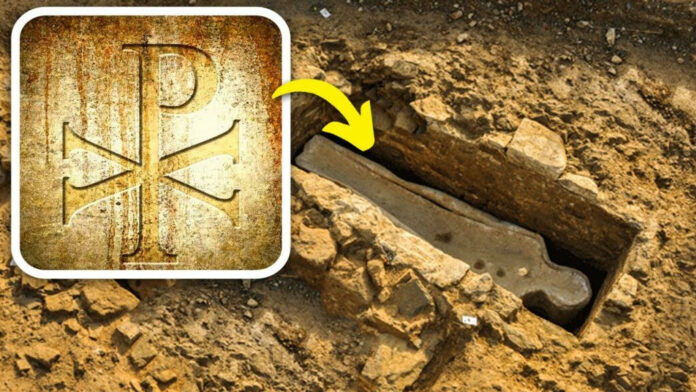Unearthing the Past in Los Villaricos, Spain
A Remarkable Find
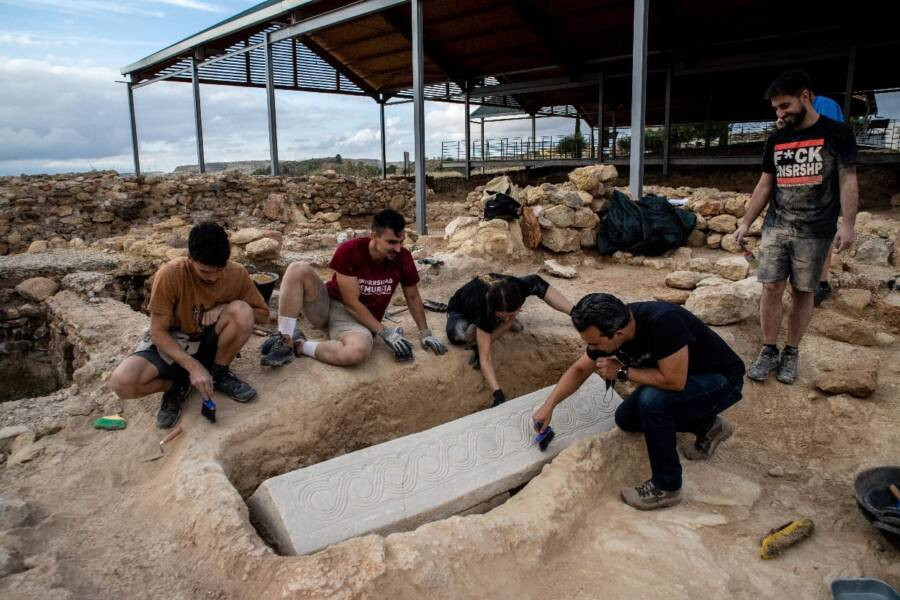
Archaeologists from the University of Murcia (UMU) have made a groundbreaking discovery in Los Villaricos, Spain. During an excavation of Roman ruins, they unearthed a beautifully preserved Visigoth coffin, likely dating back to the 6th century CE. The sarcophagus, adorned with intricate geometric patterns and intertwined ivy leaves, offers a rare glimpse into a pivotal period of European history when Germanic tribes like the Visigoths were challenging the former Roman Empire’s territories.
Historical Significance
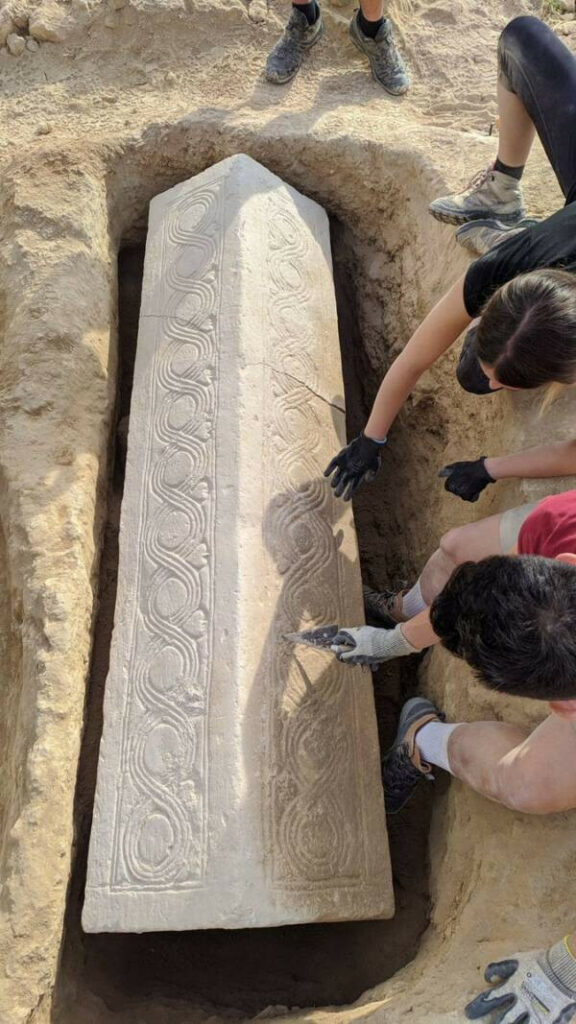
This discovery is set to rewrite our understanding of European history. The coffin provides invaluable insights into Visigoth culture, burial practices, and their relationship with the declining Roman world. Its location in a former Roman settlement suggests a stronger Visigoth presence in the region than previously thought, potentially challenging existing narratives about their interactions with the Roman Empire and their influence in the Iberian Peninsula.
Implications for Future Research
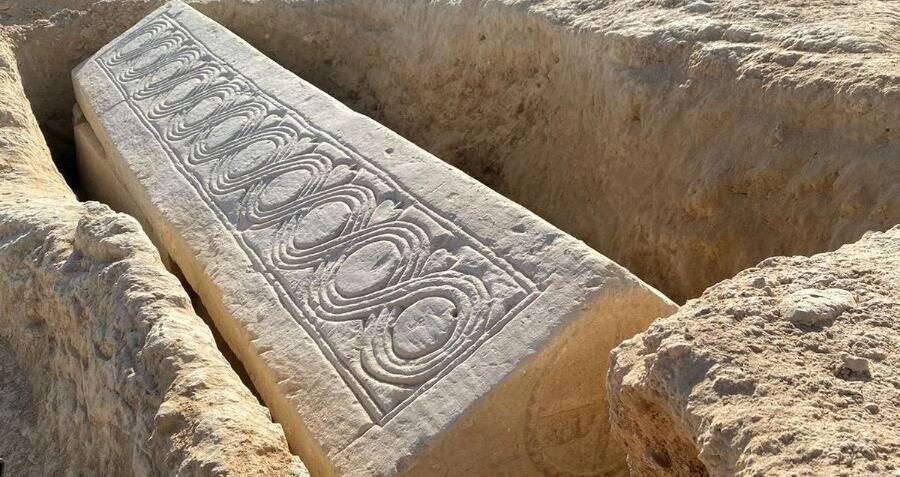
The well-preserved state of the coffin opens up exciting new avenues for research. Archaeologists and historians can now examine the craftsmanship, materials, and any artifacts found within, potentially uncovering new information about Visigoth social structures, artistic traditions, and burial customs. This discovery underscores the importance of archaeological research in expanding our knowledge of the past and challenging long-held assumptions.
Conclusion
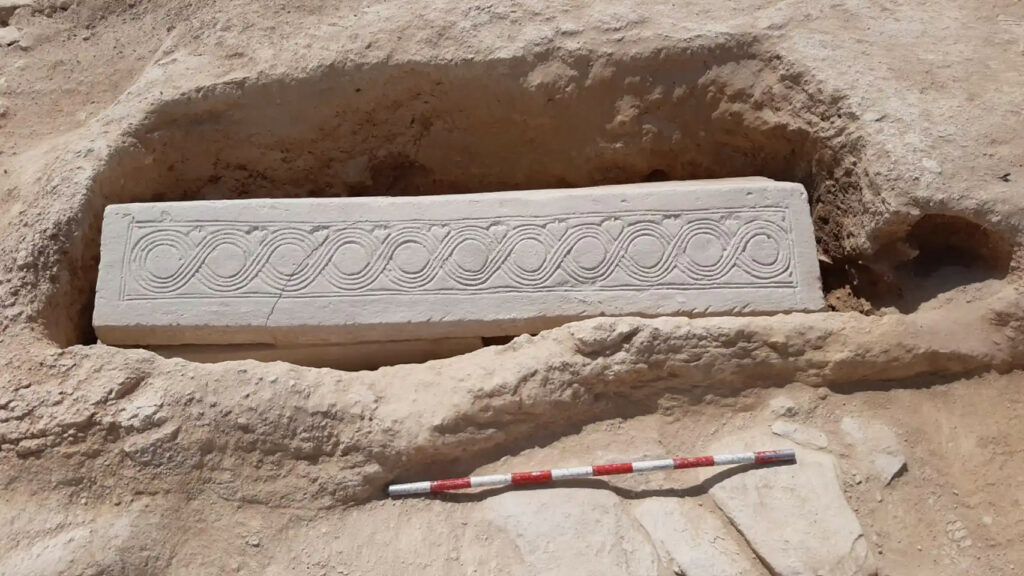
The Visigoth coffin discovery in Los Villaricos is a monumental event in the field of archaeology. As researchers continue to study this remarkable artifact, we can expect new insights that will reshape our understanding of European history, the decline of the Roman Empire, and the role of the Visigoths in shaping the cultural and political landscape of early medieval Europe.
